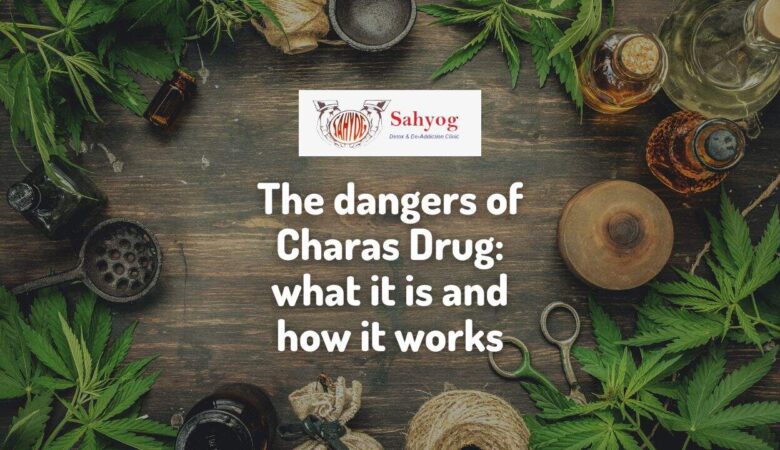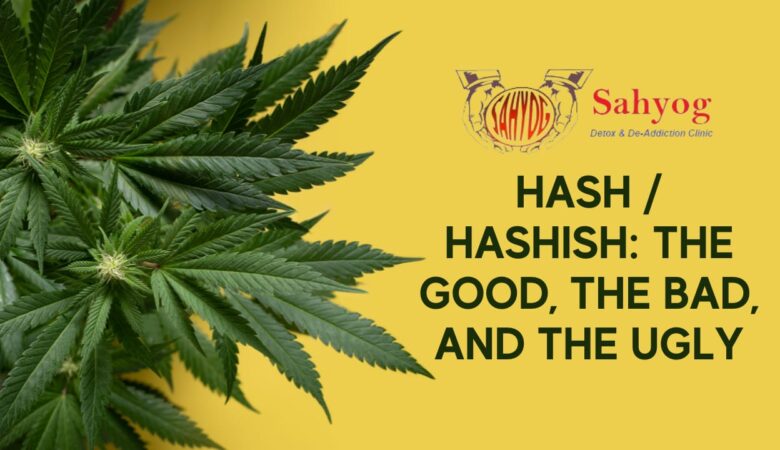The dangers of Charas Drug: what it is and how it works
Introduction Charas drug is a drug that has been gaining popularity in recent years, and it’s becoming more widespread all the time. It’s a powerful form of cannabis that can have serious impacts on your health, both mentally and physically. This article will explore what charas is, how it works, and the potential dangers associated with its use. We’ll also talk about ways to stay safe if you do choose to use this drug, as well as some of the warning signs you should be aware of if you think someone might be using it. What is Charas Drug? Charas is a drug made from the resin of the cannabis plant. It is a powerful hallucinogen and has been used for centuries in India and other parts of Asia for its psychoactive effects. Charas drug is smoked, inhaled, or ingested to produce feelings of euphoria, relaxation, altered consciousness, and even visual and auditory hallucinations. Charas is illegal in many countries and carries a high risk of addiction and physical dependence. It can also have long-term negative effects on mental and physical health. The effects of charas vary depending on the person’s tolerance and the amount consumed. Short-term effects include increased heart rate, anxiety, paranoia, and impaired coordination. Long-term use has been linked to cognitive deficits and memory loss. What are the dangers of Charas Drug? The Charas in the charas drug is a type of hashish that originates from the Indian subcontinent. It is made from the resin of the cannabis plant and is typically smoked in a pipe or joint. Charas has a high THC content and is considered to be more potent than other forms of hashish. The main dangers of charas are associated with their high THC content. This can lead to an increased risk of psychosis and anxiety, as well as impaired motor skills and memory. Charas also has a high potential for abuse and addiction. How does Charas Drug work? Charas is a type of hashish that originates from the Indian subcontinent. Charas drug use has been linked to numerous adverse health effects, including psychosis, anxiety, and depression. When inhaled, the active ingredients in Charas produce a feeling of euphoria and relaxation. This is due to the release of dopamine, a neurotransmitter that produces feelings of pleasure and reward. Charas can also cause distorted thinking, increased heart rate, and paranoia. It may also impair coordination and decision-making ability. Long-term use of Charas can lead to addiction and further mental health issues such as anxiety, depression, and psychosis. It is important to seek professional help if you are struggling with substance abuse. What is at risk for taking Charas Drug? The Charas drug is generally considered to be more potent than marijuana and can produce powerful psychoactive effects. The use of Charas carries several risks, including: Short-term memory loss: A person using the charas drug may be prone to short-term memory loss because of the drug’s effects on the brain. Impaired motor skills: Charas can cause a person to experience impaired motor skills and coordination, leading to an increased risk of accidents and injuries. Health risks: Charas use is associated with an increased risk of respiratory illnesses such as bronchitis, pneumonia, and tuberculosis. Heart disease, stroke, and other cardiovascular problems can also be increased by it. Respiratory problems: Using the charas drug for a long period can even lead to respiratory problems. Charas contains tar and other toxins which can cause respiratory problems over time when it is smoked in a pipe or bong. Legal risks: Charas is a Schedule 1 drug in India. Possessing, using, or trafficking charas can lead to heavy fines or imprisonment. Mental health problems: The psychoactive effects of Charas can cause a person to experience worsened mental health issues, such as depression, confusion, paranoia, anxiety, and other psychological disturbances. Other than these, long-term usage of the charas drug can lead to Cognitive impairment, Depression and/or anxiety disorders, Addiction or dependence on the drug, Increased risk of certain types of cancer, such as lung and throat cancer, and even a Weakened immune system. Charas can also interact with other drugs and alcohol, increasing the risk of overdose or dangerous reactions. What are the symptoms of taking Charas Drug? Most people who take the Charas Drug report feeling happy, relaxed, and euphoric. Some people also report experiencing visual and auditory hallucinations. These effects usually last for a few hours after taking the drug. Some of the more common side effects of Charas Drug include: Drowsiness: One of the most common side effects of charas use is drowsiness. This is caused because when the charas drug is consumed, the body’s central nervous system is slowed down which can lead to fatigue and sleepiness. Increased Heart Rate: Charas use can cause an increase in heart rate since the drug affects the central nervous system. This can lead to an uncomfortable feeling and potential medical risks if the heart rate gets too high. Disorientation: Charas use can also cause some users to experience a feeling of disorientation, or confusion about where they are, who they are, or what time it is. Anxiety/Paranoia: For some people who take the charas drug, they may experience increased anxiety or paranoia. These feelings are caused by a chemical imbalance in the brain that can be triggered by charas use. Loss of coordination: Loss of coordination is another common side effect of charas drug use. When a person consumes the charas drug, it can cause them to feel clumsy and their coordination can be impaired. Slurred speech: Charas use can also cause a person’s speech to become slurred. This is caused by the drug slowing down the central nervous system and affecting how messages are sent throughout the body. Nausea and vomiting: The effects of charas on the body can cause nausea and vomiting if taken in large amounts. This can lead to dehydration and other serious complications if not treated quickly. Liver damage: Taking charas can cause long-term damage to


